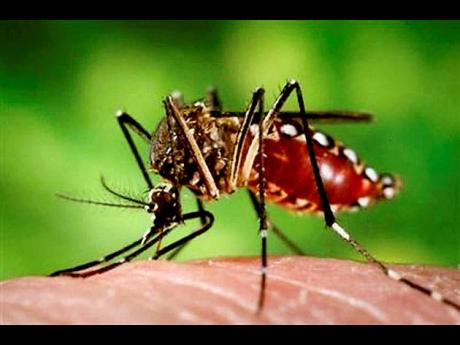Dengue is still a threat - PAHO encourages persons to eliminate mosquito-breeding sites
More than 1.6 million cases of dengue have been reported in the Americas in the first five months of 2020, drawing attention to the need to continue eliminating mosquito breeding sites, even amid the COVID-19 pandemic.
According to a recent epidemiological update on dengue and other airborne viruses from the Pan American Health Organization (PAHO), while social-distancing measures are in place, households should be encouraged to work together in and around their homes to get rid of stagnant water, reduce and dispose of solid waste, and to ensure proper covering of all water-storage containers.
“The COVID-19 pandemic is placing immense pressure on healthcare and management systems worldwide. Notwithstanding the impact of COVID-19, there is a crucial need to sustain efforts to address dengue and other mosquito-borne diseases, using the integrated management strategy to prevent and control them. This strategy covers management, epidemiology, patient care, laboratory, integrated vector management, and environment,” said PAHO.
Dr Luis Gerardo Castellanos, who heads PAHO’s unit on neglected, tropical and vector-borne diseases, urged persons to seek medical attention if they start to experience signs of dengue fever.
“People who have symptoms of dengue, including fever and severe headaches, should seek medical attention and be alert to warning signs for severity in dengue, such as persistent vomiting, intense abdominal pain, and dizziness,” he said.
Castellano said with more people being confined at home during the pandemic, it presents a good opportunity to clean up mosquito-breeding grounds. These include uncovered water containers, old tyres, and trash with any receptacles that can hold water. “If we all act systematically to eliminate mosquito habitats, we can strike a blow against dengue by reducing the risk of transmission,” he added.
PAHO urges the countries within the Caribbean and the Americas to make effective use of available resources, as staff, equipment and supplies are likely to be diverted to provide response to the COVID-19 epidemic within countries. This is with the aim to reduce the transmission of the disease and to strive to identify early predictors of severe dengue disease at the primary healthcare level.
In addition to the 1.6 million dengue cases, there were also 37,279 chikungunya cases, and 7,452 Zika cases reported to PAHO. The numbers so far in 2020 show a 10 per cent decrease when compared to the same period in 2019, which was an epidemic year. PAHO’s figures show that 580 people have died from dengue so far in 2020.

